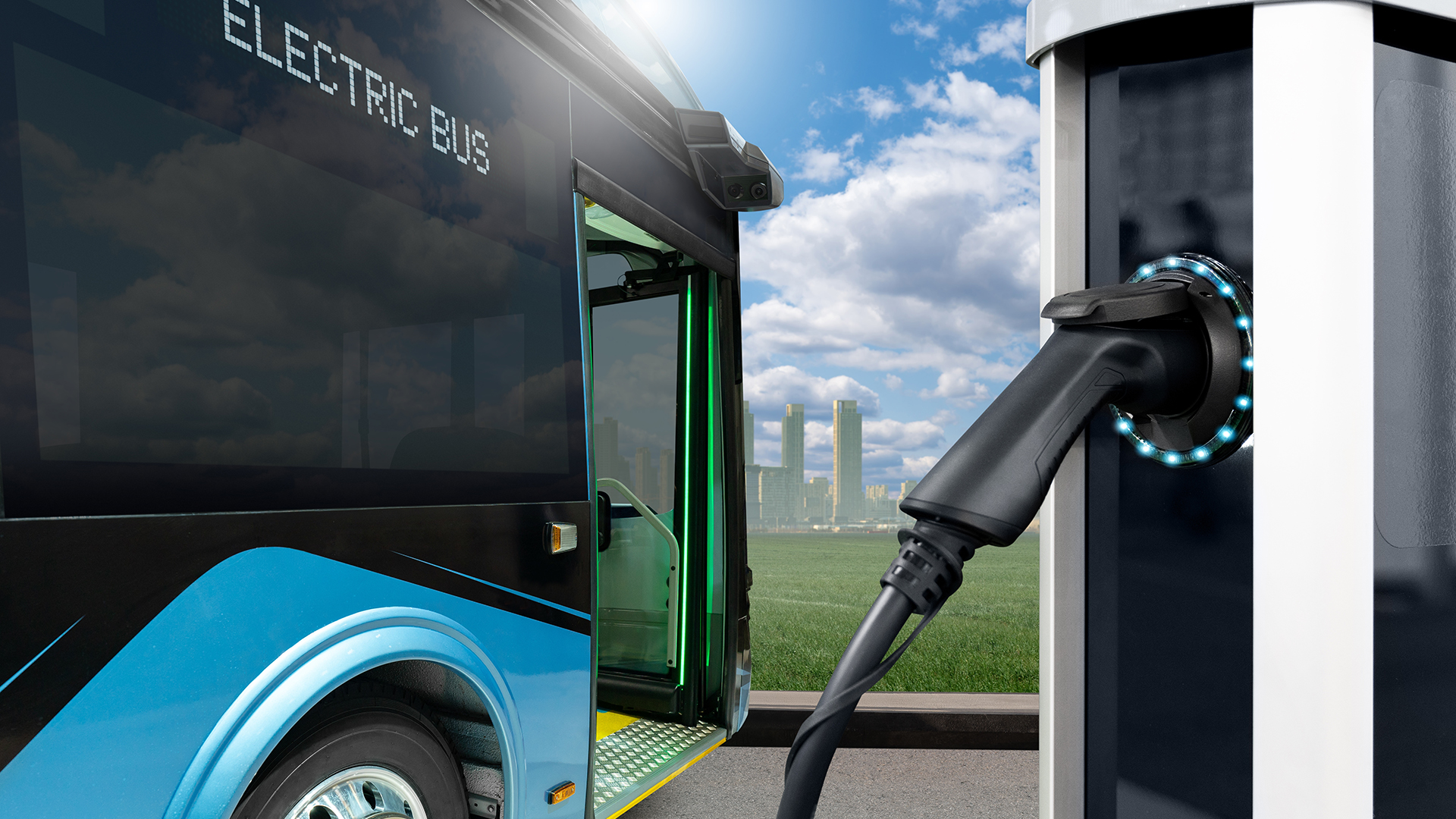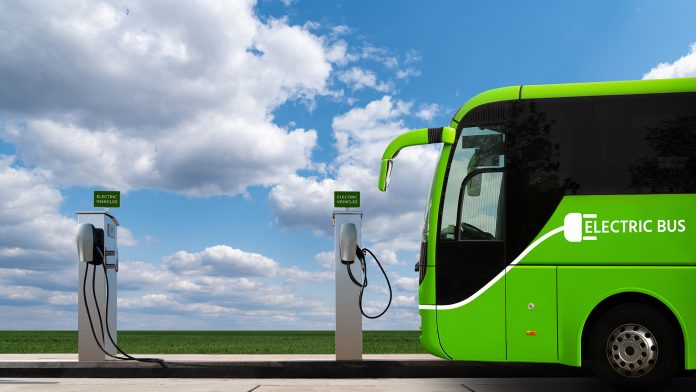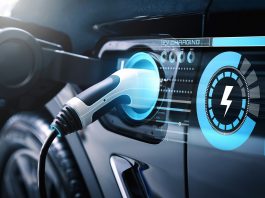Philip Kershaw, Director of eBus at EO Charging, discusses the pivotal role of electric buses in decarbonising transport for a sustainable future.
The transportation industry is under intense pressure to implement emission-free alternatives in light of climate change and urban pollution.
There are 1.56 billion automobiles on the road, 16% of which are commercial, accounting for 40% of total road emissions, making the electrification of commercial fleets crucial in our pursuit of a sustainable future.
The electrification of buses has made good headway in recent years. With predictable trips, eBuses are excellent for decarbonising public transit while providing cleaner, quieter, and more pleasant transportation for the consumer.
The zero-emission buses (ZEB) movement has grown rapidly in recent years, starting with major cities like London successfully deploying and demonstrating the benefits.
There is now a growing demand across the UK as operators realise the benefits electric buses can contribute to their community.
In March 2024, Warrington Council unveiled its new 105-bus strong fleet. From this summer, it will replace Warrington’s Own Buses’ entire diesel range, providing quieter and cleaner transport for the town’s residents.
Projects like this are complex and costly and only possible with a combination of government support and funding as well as the right technology partners.
The bus sector still faces significant and varied challenges, and to overcome these barriers, we need to see concerted efforts from policymakers, coupled with technological innovations like EV load management – crucial for facilitating the widespread adoption of electric buses and advancing towards a sustainable future.
Barriers to eBus adoption
- High CAPEX – Upfront costs are a primary obstacle because electric vehicles and charging infrastructure are While the capital expenditure (CAPEX) for electrification is high, it is important for operators to understand the long-term cost benefits of electrification, such as reduced maintenance, lower fuel and running costs and extended vehicle lifespan. However, there are some promising developments in the EV market that aim to support the reduction of vehicle costs, making the move to EVs even more accessible. With mass adoption and technological advancements, vehicle prices are expected to decrease in the coming years. New financing options like charging as a service (CaaS) will also act as a gateway for operators who do not have access to the upfront CAPEX needed to start their electrification journey.
- Range Anxiety – This refers to the fear that an electric vehicle will not have enough battery capacity to reach its destination. It is especially prevalent in rural areas with fewer passengers and longer routes. In reality, battery technology advances continue to extend electric buses’ driving range, and strategic planning and fast charging will address this issue.
- Limited power supply – The electrification of buses transforms depots into industrial electricity users, consuming 30MWh of energy each night. Energy and load management are crucial to maximise available power and prevent energy limits from being breached. Battery storage systems can mitigate power supply shortages and accelerate the transition to sustainable transportation systems. In addition, energy management offers benefits like timed connections, vehicle scheduling, and off-peak tariffs.
As exemplified here, the challenges are varied and complex, but we stand to make good headway with emerging technological developments and a willingness to change. However, policymakers are required to support the growth of bus electrification.
Push for stronger support from policymakers
There are several ways that the bus sector could benefit from the additional support of policymakers, some of which the government is already considering.
There are several initiatives that have proved to be successful and could be expanded, including the Ultra Low Emission Bus Scheme (ULEB) and the Zero Emission Bus Regional Areas (ZEBRA) scheme.
The second round of ZEBRA funding awards was announced in March, which made £143m available for transition to zero-emission buses, with battery electric projects being the majority.

A key area that needs to be addressed is the high upfront costs associated with EV fleet electrification. Increasing funding and incentives such as grants and tax breaks will make the move to zero-emission fleets more accessible to operators.
Furthermore, the government could consider creating key partnerships with financial institutions to provide financing solutions like low-interest loans customised to bus operators’ requirements.
The government also has a role to play in integrating rapid charging stations that cater specifically to commercial vehicles, such as fleets, buses, and coaches.
This approach will ensure that these high-use vehicles can operate efficiently and sustainably, promoting widespread adoption of electric vehicles in critical transportation sectors and significantly reducing carbon emissions.
Regarding regulatory hurdles, the UK government’s continued work with industry stakeholders via ZEMO, CPT, and other task forces will help streamline permitting processes and establish standardised regulations for electric bus operations. This includes simplifying licensing requirements, establishing uniform safety standards for battery handling, and providing guidance on procurement practices.
Finally, local investment into electrical infrastructure at bus depots, as well as exploring options for load management and energy storage solutions, would work to address the limited power supply.
The government could support this by providing grants or subsidies for depot electrification projects and incentivising the adoption of smart grid technologies, which enable the development of intelligent charging infrastructure that goes beyond simply delivering electricity to EVs.
Accelerating the shift towards electric buses
Transitioning to electric buses is an important step towards creating sustainable transportation and will ultimately be an essential tool for combating climate change and improving air quality in urban areas. Substantial progress is already being made, and critical changes are being made to infrastructure.
To overcome these challenges, a combination of government support and technical innovations will be essential to make eBus adoption more accessible.









